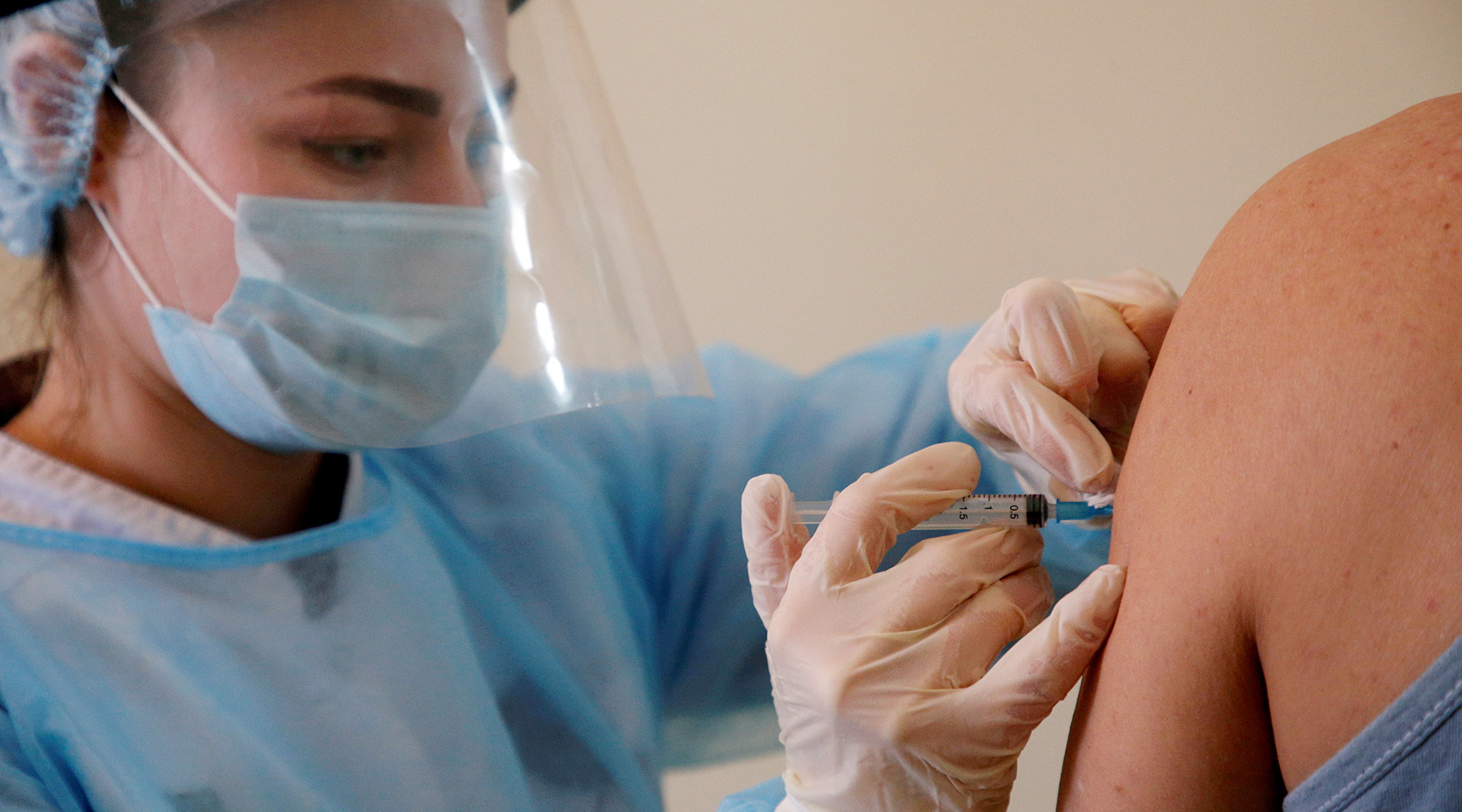The first large batch of the Russian vaccine against coronavirus infection "EpiVacCorona", developed by the State Scientific Center for Virology and Biotechnology "Vector", is sent to the regions.
This was reported by the press service of Rospotrebnadzor.
"On April 5, more than 230 thousand kits of the EpiVaccorone vaccine were sent to more than 40 constituent entities of the Russian Federation," the TASS agency was quoted as saying.
As noted in the press service, this amount of the drug is enough to vaccinate about a quarter of a million people.
The drug is supplied to the regions by the Natsimbio holding of the Rostec state corporation.
The Russian Direct Investment Fund also reported that it had agreed with one of the leading manufacturers of vaccines and drugs in India, Panacea Biotec, to produce 100 million doses of Sputnik V vaccine in India annually.
The RDIF clarified that the production of the drug at the company's enterprises will help ensure the supply of vaccines to the international partners of the fund.
“Vaccine partnerships are key to tackling the pandemic.
The fight against coronavirus around the world continues and we see growing interest in the Sputnik V vaccine as one of the best drugs available today.
The agreement with Panacea Biotec is an important milestone for the production of vaccines in India and for ensuring supplies to our international partners, ”said Kirill Dmitriev, head of the fund.
In turn, Panacea Biotec Managing Director Rajesh Jain noted that the company will manufacture Sputnik V at accredited facilities that comply with strict international GMP standards and are prequalified by WHO.
Reuters
© Eduard Korniyenko
At the same time, the press secretary of the Russian President Dmitry Peskov, commenting on the situation with the purchase of Sputnik V by other countries, stressed that “the absolute priority is to meet internal needs” for the drug.
“Contracts are signed with different countries for a different amount.
But, as a rule, all contracts are extended in time.
That is, this does not mean that the amount specified in the contracts is provided instantly, and during one or several deliveries this contract is closed, "Peskov explained, answering the question about the speed and sequence of vaccine deliveries abroad.
Recall that in August, Russia was the first in the world to register the Sputnik V vaccine against COVID-19, which was developed by the specialists of the Gamaleya Center.
Today Sputnik V is registered in 59 countries with a total population of over 1.5 billion people.
The effectiveness of the drug is 91.6%, which is confirmed by the publication of data from one of the oldest and most respected medical journals in the world in The Lancet.
Later, two more Russian drugs were registered - "EpiVacCorona" by the "Vector" center and "KoviVac" by the Federal Scientific Center for Research and Development of Immunobiological Preparations named after M.P.
Chumakov RAS.
Mass vaccination against coronavirus infection began in Russia on January 18.
Meanwhile, Anastasia Rakova, deputy mayor of the capital for social development, said that clinical trials of a nasal form of a vaccine against coronavirus infection COVID-19 could begin in Moscow by the end of summer.
She also reported that the recruitment of volunteers for international trials of the Sputnik Light vaccine was completed in the capital.
In February, Moscow Mayor Sergei Sobyanin said that all three phases of testing the nasal version of the Sputnik V vaccine would take place in Moscow.
He clarified that the drug forms immunity in the nasopharynx area and will not replace a full-fledged vaccination, but it can be useful as an additional form of protection.
Meanwhile, the representative of the World Health Organization (WHO) in Russia, Melita Vujnovich, announced the possibility of human transmission of coronavirus to a number of animals.
According to her, "the COVID-19 virus spreads mainly through human-to-human transmission, but there is evidence of human-to-animal transmission through the channel, since it is a zoonotic virus."
In particular, tests of dogs, domestic cats, raccoon dogs and some other animals that have come into contact with infected people have shown a positive result for COVID-19.
Vujnovic added that "it is important to understand which animal species are most susceptible to the virus in order to find other potential animal reservoirs and avoid future outbreaks."

